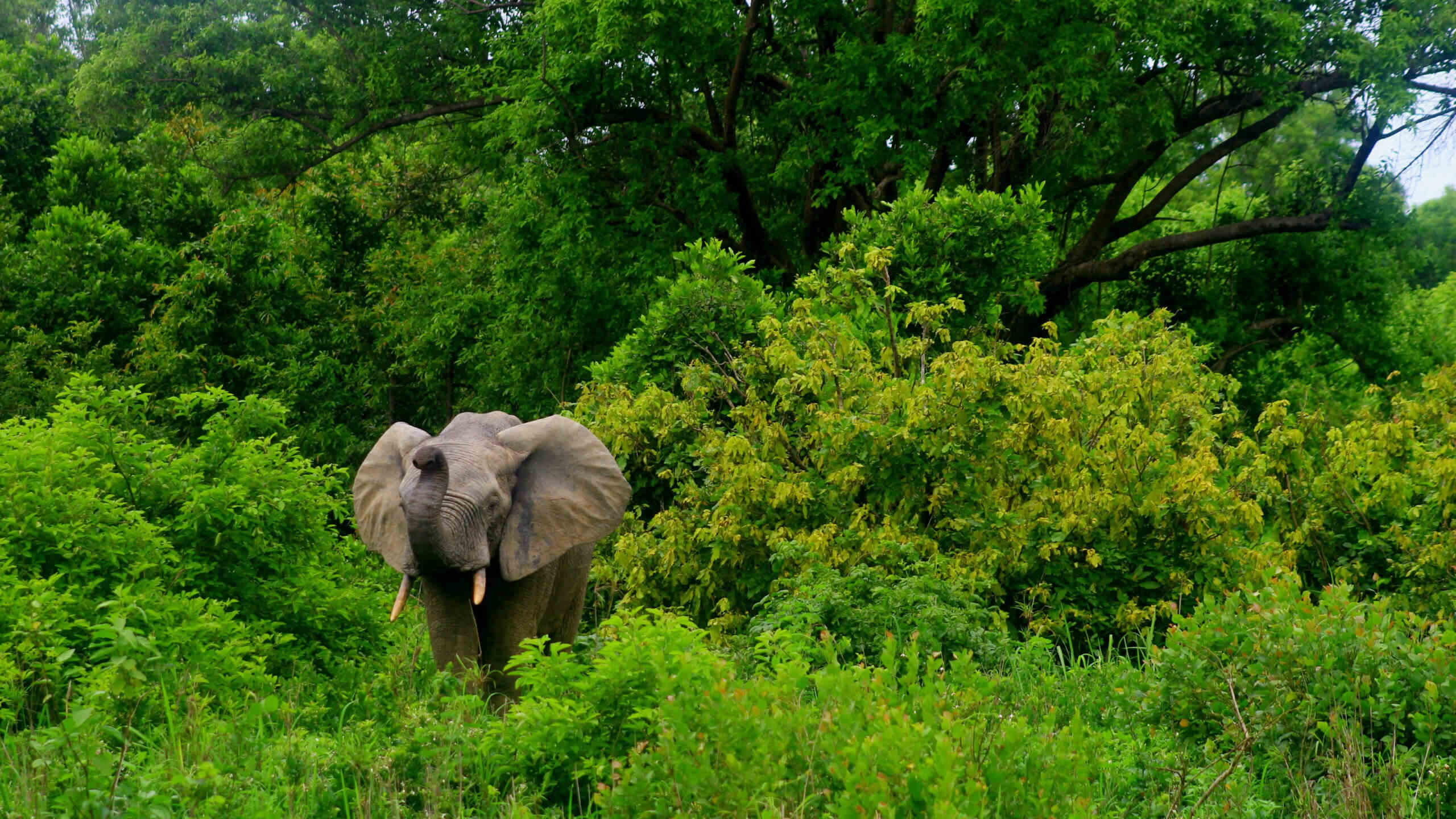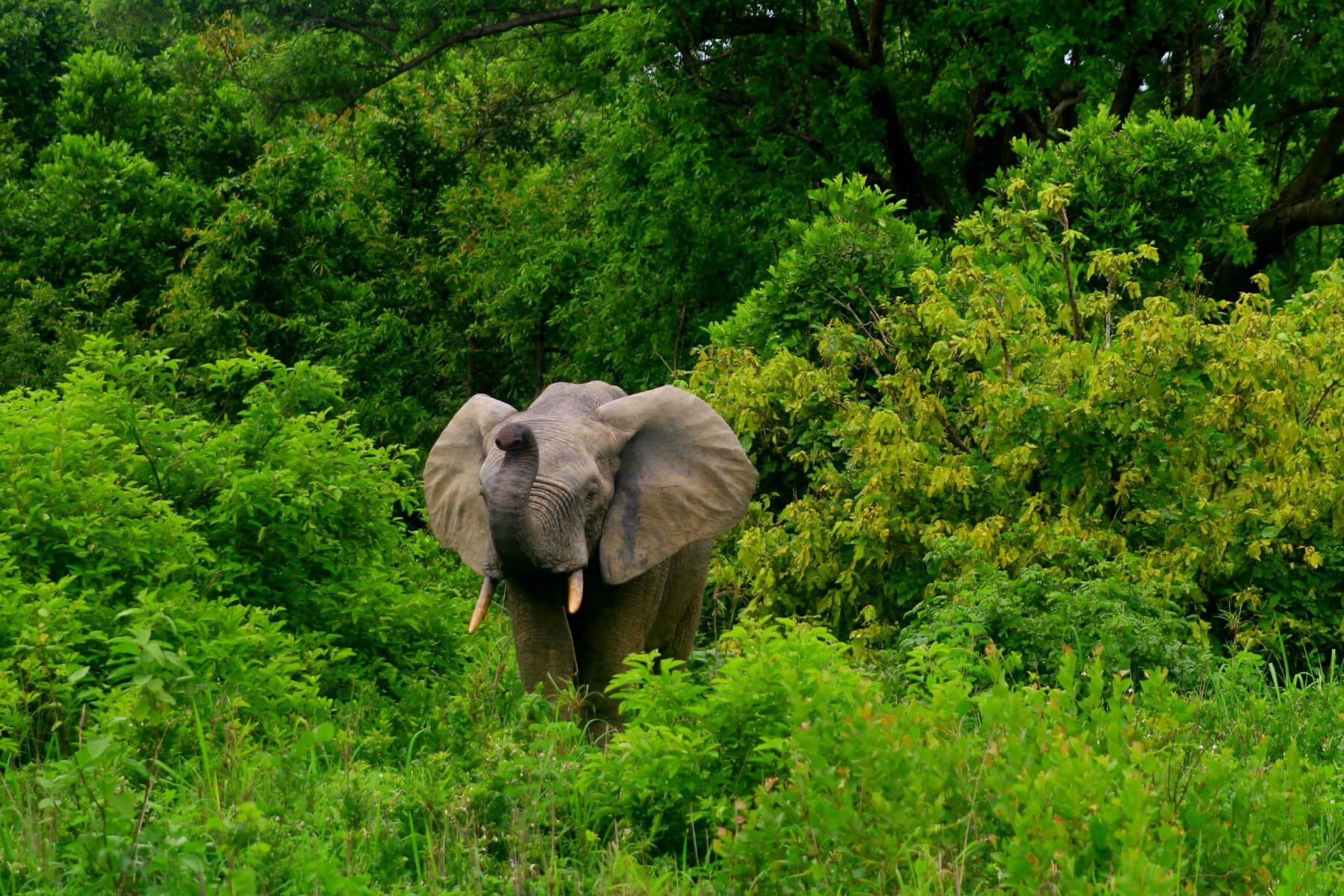Reforestation In
Ghana
Ghana, in West Africa, features tropical high forests and biodiverse savannas. Tropical forests cover 10.2% of its land area; mostly in reserves, with small sacred groves making up less than 2%. The forests and coastal wetlands support numerous endemic butterfly and bird species. Rich in biodiversity, Ghana is home to 221 species of amphibians and reptiles, 728 bird species — including 15 significant waterbirds — and 225 mammal species.
Ghana's biodiversity faces major threats, including land-use conversion for large-scale farming, habitat degradation from pollution, and invasive species like Chromolaena Odorata. Over-exploitation occurs through illegal logging and inappropriate fishing practices. Climate change exacerbates these issues, causing sea level rise, droughts, and floods. These issues highlight the urgent need for conservation to protect Ghana’s natural resources and support its communities.

Ghana Stats
10.2%
Tropical forest cover
10.2% of Ghana's total land area is covered by tropical forests.
Ghana - Country Profile, Convention on Biological Diversity
18k
Hectares of forest loss
18,000 hectares of primary forest were lost in Ghana in 2022, the highest proportion of loss of any tropical country that year.
Primary forest loss in Ghana from 2001 to 2022 in 1,000 hectares, Statista
60%
of jobs supported
About 60% of the population, including 53% of women, are employed in the agriculture and forestry sectors.
Ghana, Interactive Country Fiches
75%
Habitat Loss
At least 75% of California’s original habitat has already been lost.
60%
Of Water
60% of potable water in California is sourced from forested watersheds.
Project Highlights
Reforestation in Ghana can help combat deforestation, restore wildlife habitats, and improve soil and water quality. Planting trees supports biodiversity, stabilizes the climate, and ensures a healthier environment for future generations. Learn about two recent reforestation projects that planted trees in Ghana!

Bamboo Restoration in Bandai Hills
This project combines conserving existing forests with planting native trees and bamboo, which is fire-resistant and restores canopy cover quickly. It aims to reverse damage from illegal hardwood harvesting and fires. As the trees grow, they will improve soil stability, combat climate change, and benefit biodiversity and local communities.
Cocoa Agroforestry
The aim of this project is to supply smallholder cocoa farmers with high-performance seedlings, transforming degraded lands into thriving, productive areas. This effort enhances watershed protection, soil health, and wildlife habitat while promoting sustainable cocoa farming and reducing the need to clear forests.


Hog and Sheep Fire Restoration
This project reforested areas that were impacted by the 2020 Hog and Sheep fires. These high-severity fires heavily damaged local watersheds and habitat areas. Planting trees helped to restore habitat, improve soil stability, and increase carbon sequestration. Seedlings were planted at variable densities depending on slope, aspect, soils, site class, and soil moisture in late winter to early spring.


